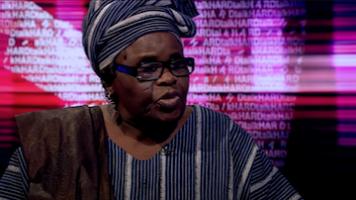Donald Trump tweets that the U.S. will be cutting off aid to South Africa. Photo: Twitter
A torrent of false and racist claims culminated in a presidential executive order suspending any aid to South Africa. Donald Trump is attempting to stand in the way of its land reform process.
The number of carjackings in South Africa exploded after voters of all races went to the polls for the first time in 1994 to abolish apartheid and has remained high ever since, befitting what is, by the most commonly used yardstick, the world’s most unequal country. On a per capita basis, carjackings in South Africa outpace those in the U.S. by a factor of nearly 20.
More disturbing is that carjackings in South Africa are more likely to be fatal than almost anywhere else in the world. There are myriad reasons for this, but when I lived in the country 25 years ago, it was an article of faith among police, researchers, and journalists that a primary reason was the inability of some South African whites—especially the Afrikaners who were responsible for introducing apartheid in 1948--to surrender their vehicle to Blacks who they continued to view as employees or children.
One white South African photographer joked at the time that many an Afrikaner motorist had met his maker after bellowing the final words:
Get the f#$k away from my car, kaffir!
These, I think it safe to say, are Donald Trump’s people and partly explain why he signed an executive order last week suspending aid to South Africa for passing legislation in January allowing the government to seize farms from a tiny yet affluent white minority and transfer ownership to impoverished Blacks.
It's all of a piece for Trump whose articulation of solidarity with brash, bullying white bigots abroad is calculated to assuage the fears of whites at home, encouraging them to blame their diminishing living standards on anyone—unqualified Black air traffic controllers, despotic African politicians, Mexican immigrants, Communists, the Chinese, Panamanians, the LGBTQ community—rather than the wealthy, mostly white aristocracy that has managed to capsize a functioning industrial economy in the 45 years since Ronald Reagan began to double down on a divide-and-conquer political strategy.
While Reagan cloaked his support of apartheid in the Orwellian policy of “constructive engagement,” Trump wears his white supremacist bona fides on his sleeve like some Proud Boys’ badge of honor.
In a February 2 post on his Truth Social platform, Trump wrote that “South Africa is confiscating land, and treating certain classes of people VERY BADLY.
“The United States won’t stand for it, we will act,” he wrote. “Also, I will be cutting off all future funding to South Africa until a full investigation of the situation has been completed!”
Responding to reporters’ questions the following day, he said:
“Terrible things are happening in South Africa.”
Indeed there are but that has nothing to do with land reform legislation that is, given the circumstances, rather timid, requiring the government to negotiate in good faith to buy farms at a fair-market price with expropriation as a last resort, to be implemented only when buyer and seller cannot agree to terms.
This is not simply a matter of Black South Africans settling scores with European settlers who arrived in the country on April 6, 1652, and promptly went to work stealing the land at gunpoint, never to return it.
Thirty-one years after this country of 60 million people won its independence from a tiny white minority representing only 8 percent of the population, the balance of economic power remains unchanged. Black South Africans account for 80 percent of the population yet own only 4 percent of all privately-owned farmland. While South Africa is the most industrialized country on the continent, it continues to rely heavily on agriculture, and the concentration of vital lands among the white minority puts a lid on the country’s prosperity. Much like the 1862 Homestead Act ultimately unleashed the free-market economy in the U.S., giving more South Africans access to the land will expand the middle class, reduce poverty, crime and political instability.
"Land is the key to accumulating wealth in an agrarian society," Shadrack Gutto, a law professor at the University of the Witwatersrand told me in 2001. "You cannot possibly improve Africa for future generations without somehow addressing the need to return to its rightful owners the land that has been unlawfully taken from them over the course of 300 years. What you have is a very small segment of the population ready to jump to the industrial phase, and everybody else gets left behind."
Much as their national rugby team, the Springboks, galvanized South Africans of all races by winning the world cup in 1995 as it was transitioning to democracy, saber-rattling by the Trump administration seems to be strengthening the nation’s resolve, a white South African journalist told Black Agenda Report on condition of anonymity
“We will not be bullied,” South African President Cyril Ramaphosa affirmed in his State of the Nation address last week. Without mentioning Trump, he continued:
“We are witnessing the rise of nationalism and protectionism, the pursuit of narrow interests and the decline of common cause.”
Julius Malema, a South African lawmaker and leader of a Communist-inspired opposition party, the Economic Freedom Fighters, responded to Trump’s remarks last week saying:
“The statement by Donald Trump is offensive and undermines our sovereignty and is a reminder that our reliance on foreign aid and foreign direct investment surrenders us to the will of imperialists who use money to dictate the economic and policy direction of Africa. We want to make it categorically clear to the President of the USA that we are going to expropriate land without compensation and pursue legislative measures to do so and no threat will stop us.”
The Trump administration, however, continues to paint South African whites as victims. Responding to a Ramaphosa post on X last week, Trump’s advisor Elon Musk, who was raised in South Africa, responded: “Why do you have openly racist laws?”
That sparked this exchange between Malema and Musk:

Trump’s executive order is a study in racist demagoguery, asserting South Africa’s expropriation law authorizes “the government… to seize ethnic minority Afrikaners’ agricultural property without compensation.” In the executive order, the US also offered to resettle Afrikaaner South Africans, a suggestion that was dismissed by Afrikaaner groups, including some that lobbied Trump to intervene.
South Africa’s white farmers have for years been a concern for Europeans internationally, especially since the late President Robert Mugabe began confiscating farmland from whites in neighboring Zimbabwe in the 2000s.
In 2018, during his first term in office, Trump repeated an old wives’ tale that South Africa had witnessed “large-scale killings” of white farmers; no evidence exists to support the allegation.
Compounding matters is South Africa’s action at the International Court of Justice charging Israel with committing genocide against Palestinians following Hamas’ Al-Aqsa Flood on October 7, 2023. To be sure, South Africans have a dog in the fight: Israel supported the apartheid regime even during the international boycott, and the Palestinians are, along with the Cubans, among the ANC’s staunchest allies. Speaking again on the condition of anonymity, the white journalist wrote in a direct message:
“Also (I) don't think SA will be bullied into withdrawing its genocide case against Israel at ICC which has wide support.”
Ironically, many Black South Africans say that they need to deploy the same nationalist sensibilities espoused by Trump and the apartheid regime of old by investing, almost maniacally, in economic development in Black communities. As one example, Black South Africans have, over the years, suggested parroting the land reform schemes in postwar South Africa and Rhodesia.
Not only did the white-minority governments seize Black farmland, but they handed the sector over to veterans returning home from war, many of whom had little to no experience in agriculture. (For instance, Rhodesia’s iconic Prime Minister, Ian Smith, often referred to as Africa’s Bull Connor, was a butcher’s son.) But the white-minority government propped them up with loans. When the crop failed, the government forgave the loan, and issued another one; when that crop failed, they forgave the debt and loaned more money. On and on it went until white farmers in Rhodesia and South Africa were widely known as among the finest farmers in the world.
Combined with the young, pan-Africanist leaders who have come to power in the Sahel region, Trump’s provocation, many Africans say, could spark this kind of investment, and economic development that finally returns Africa to Africans.
Jon Jeter is a former foreign correspondent for the Washington Post, Jon Jeter is the author of Flat Broke in the Free Market: How Globalization Fleeced Working People and the co-author of A Day Late and a Dollar Short: Dark Days and Bright Nights in Obama's Postracial America. His work can be found on Patreon as well as Black Republic Media.



















